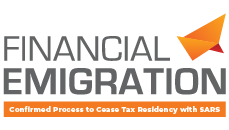The 3 most common misconceptions expats fall victim to
1. Tax returns:
The majority of expatriates declare that their tax affairs in South Africa are in order and that they have nothing to worry about. However, upon closer inspection, they discover that their tax submissions are inaccurate. This is because many expatriates are told that once they leave South Africa, they are no longer obligated to file returns or declare their foreign income. As a result, they have been erroneously filing returns that only show South African-sourced income or nil returns.
2. Deregistration:
Another common fallacy is that when you lose your tax residency, your tax number is automatically deregistered. Taxpayers further confuse the notion of having a deactivated tax number with that of being deregistered from SARS, but the two do not correlate.
The truth is that certain criteria must be considered before taxpayers can be deregistered. First and foremost, before the deregistration process can begin, a taxpayer must be fully compliant with SARS; if the person has any outstanding tax returns or debts, they must be submitted/settled with SARS. Secondly, you can deregister for tax in its entirety only when you have disposed of all your assets, such as bank accounts, properties, and shares. This is a formal application that is submitted to SARS.
3. Deactivation/Inactive:
Some expatriates believe that their tax identities will always remain available, no matter how long they stay outside of South Africa. When a tax reference number is deactivated, it means that it is no longer considered valid and is no longer active in the SARS database. SARS will normally deactivate your tax number if you haven’t filed a tax return in a while or haven’t used your SARS profile frequently.
As an expat, having an inactive tax number can cause a slew of issues, such as withdrawing your retirement money because the fund requires approval from SARS (in the form of a directive), which cannot be executed on an inactive number. As a result, the tax number needs to be reactivated, which must be done in person at a SARS branch or through an appointed tax practitioner, who will act as your representative to fulfil this function on one’s behalf.
Mitigating the consequences of non-compliance
If done correctly, there are solutions available to South Africans living and working abroad to avoid these misconceptions, thereby reducing and potentially eliminating tax liability. The first step is to make sure your South African tax profile is current and compliant. That implies that all tax returns should be filed, and there should be no debts owed to SARS which can be picked up by preforming a tax diagnostic on your SARS profile.
A tax diagnostic allows one to evaluate your historic compliance (actual, not necessarily as accepted by SARS currently) and plot your next steps to ensure compliance from a filing perspective. This will offer you a broader understanding of your SARS profile and how to mitigate consequent risk.
Taxpayers are also encouraged to create eFiling profiles to see their historical records and get all correspondence issued by SARS regarding their tax matters.
Conclusion
While the bounds of tax non-compliance have become a topic of controversy, expats must be aware of the realities of tax administration and remember that it is their responsibility to be tax compliant. SARS will not hold a misconception to account for your non-compliance. Rather than exposing themselves to criminal prosecution, they must take deliberate and thorough action to attend to their tax issues or conduct a tax diagnostic under the guidance of a provider with a strong tax and legal component.








